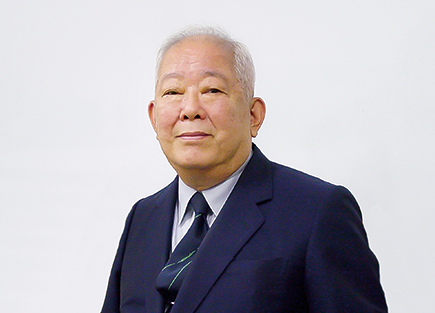Disclaimer: machine translated by DeepL which may contain errors.
Special Article In Memoriam: Masatoshi Koshiba, Special University Professor/Special University Professor Emeritus, The University of Tokyo
Masatoshi Koshiba ( Special University Professor/Special University Professor Emeritus, The University of Tokyo)
D. in 1951 from the Department of Physics, The University of Tokyo, and in 1955 from the University of Rochester, USA (Ph. D.). He became Associate Professor at the Institute for Nuclear Study, The University of Tokyo in 1958, Professor in 1970, and Director of the High Energy Physics Laboratory in 1974 (now the International Center for Particle Physics). After retirement, he became Professor at Tokai University and established the Heisei Foundation for Basic Sciences (where he was appointed Executive Vice President), where he worked to advance basic science and educate young people. In 2002, he was awarded the Nobel Prize in Physics for his work on the detection of cosmic neutrinos.
On the news of the death of Dr. Masatoshi Koshiba
|
The members of the Graduate School of Science are at a loss for words at the news of the sudden passing of Professor Masatoshi Koshiba, Special University Professor/Special University Professor Emeritus at The University of Tokyo. We express our deepest condolences.
 The late Dr. Masatoshi Koshiba
The late Dr. Masatoshi KoshibaAfter graduating from the Faculty of Science of The University of Tokyo, Dr. Koshiba completed his graduate studies in the United States before returning to the Graduate School of Science, where he served for many years as Assistant Professor and Professor. In 1987, he was the first in the world to observe neutrinos from a supernova explosion in the Large Magellanic Cloud, for which he received numerous awards, including the Nobel Prize in Physics in 2002. This research also led to Professor Kajita's 2015 Nobel Prize for neutrino oscillation. The entire Science Department is deeply grateful to Dr. Kajita for his great contributions to academia.
After retiring from the University, Dr. Kajita continued to promote the development of basic science, provide research guidance to young people, and educate many researchers. I would like to pay tribute to Dr. Koshiba's keen intuition and passion for his research and his sincere personality, and sincerely pray for his soulful rest in peace.
In Memoriam: Special University Professor/Special University Professor Emeritus Masatoshi Koshiba
|
Professor Masatoshi Koshiba, Special University Professor/Special University Professor Emeritus of The University of Tokyo, passed away on the evening of November 12, 2020. We would like to express our deepest condolences.
A graduate of the Department of Physics, Dr. Koshiba taught in the Department of Physics from 1963 to 1987, during which time he laid the foundation of neutrino astronomy with the construction of the Kamiokande and the observation of neutrinos from supernova explosions. As an educator, he has trained many outstanding young scientists, and this has led to many achievements that no single researcher alone could have made possible.
When asked what the Nobel Prize in Physics he received in 2002 could do for his research, he proudly replied that it could do nothing. At first glance, this may seem paradoxical, but I think he was emphasizing the importance of basic research by showing the purest physicist's attitude to elucidate the wonders of the natural world and search for the truth.
I remember once visiting his laboratory with a bit of trepidation and nervousness to submit a report on a poorly performed student experiment, but that was the year the Kamiokande was completed. Looking back, that was the year the Kamiokande was completed. I remember how energetic he was then, and I pray for his soulful rest in peace.
Faculty of Science News, January 2021


